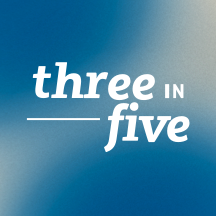Explore institutional insights

Client sign in
- Please enter a search term.
-
Insights
Stay up to date

Market update

Investor insights
-
Investments
Stay up to date

Market update

Investor insights
-
About us
Stay up to date
Learn more about our investment group

Market update

Investor insights
- Please enter a search term.
- Investments
-
Insights
- Back
- Insights
- Insights Overview
-
All insights
- Back
- All insights Overview
- Q3 2021: Investment grade private credit update
- Evaluating private credit opportunities in today’s market
- 2022 BentallGreenOak Perspective report
- The case for real estate
- The Impact of Rising Rates – LDI Client Update
- Global Investment Outlook 2022
- Investing in an inflationary environment
- Q2 2022: Investment grade private credit update
- Regulatory Update - Schedule D Part 1 (Bonds)
- Q3 2022 Investment Grade Private Credit Market Update
- Crescent Capital Markets Q3 2022 Update
- Multi-Asset Credit Strategy: October 2022 Update
- Investing into the rate-hiking cycle
- Multi-Asset Credit Strategy: November 2022 Update
- Multi-Asset Credit Strategy: December 2022 Update
- 2023 Global Investment Outlook
- Q4 2022: Investment Grade Private Credit update
- Multi-Asset Credit Strategy: January 2023 Update
- Fireside chat: Seize new opportunities in bonds and structured credit
- Q1 2023: Investment Grade Private Credit update
- Q1 2023: Crescent Capital group market commentary
- Crescent experts Q&A: How innovation will drive private debt forward
- June 2023: Private Credit Insights
- The BMA’s upcoming regulatory review
- The Elusive Recession - Commentary by Crescent Capital Markets
- 2023 Mid-year Global Investment Outlook
- Commercial mortgage-backed securities are in the spotlight again, but this isn't 2008
- Q2 2023: Investment Grade Private Credit update
- Cautious optimism
- Q3 2023: Investment Grade Private Credit update
- Narrowly syndicated credit: yield opportunities in an underexplored niche
- Don't rest yet, the recession will rear its head in 2024. Here's how to protect your bond portfolios
- 2024 Global Investment Outlook
- Q4 2023: Investment Grade Private Credit update
- Insurance solutions
- Retirement plan solutions
- Sustainable Investing
- Market updates
-
Three in Five Podcast
- Back
- Three in Five Podcast Overview
- Mark Attanasio on the changing landscape of private credit
- James Slotnick on the U.S. midterm elections
- James Slotnick on the 2022 U.S. midterm elections
- Andrew and John on commonalities in investment grade private credit and narrowly syndicated bank loans
- Laila on operational considerations for investment grade private credit investors
- Cliff Corso on opportunity in the high net worth market
- Kate McKeon on sustainable investing and Net Zero
- Ben Greene on education, allyship, and the trans experience
- Melissa on the importance of the client experience
- Cristina Medina on Invest in Girls
- Steve on the Canadian P&C insurance market
- Rich and Peter on growing stress in the banking sector
- Doug on the debt ceiling
- Jim Blakemore on real estate debt
- Chris and Tim on the Special Financial Assistance Program for Taft Hartley plans
- Veronique on the evolution of LDI investing in Canada
- Chris Wright on the future of private credit
- Beth Brown on workplace burnout
- D.J. on the CMBS market
- Josh Davis on inner mastery and effective leadership
- James Slotnick on the politics of raising the U.S. debt ceiling
- Kevin Quinlan on climate change as a material investment risk
- Steve Peacher on the 10-year anniversary of SLC Management
- David Hamlin on fundamental credit research
- Michael Schnitman on alternatives in the high net worth space
- Steve Peacher reflects on challenges and milestones in 2023
- Subscribe
- About us
- Careers
- Contact us
- Newsroom
- Thank you
- U.S. | EN

Welcome to SLC Management site for institutional investors
Before you proceed, please select your location
Episode 47
APRIL 20, 2022
Abbe Borok on real estate debt
Abbe Borok, Managing Director and Head of U.S. Debt at BentallGreenOak, discusses opportunities in the real estate debt market and the various benefits for investors.
Steve Peacher: Hi everybody thanks for dialing in to this episode of “Three in Five” this is Steve Peacher head of SLC Management. Abbe Borok who's managing director and head of U.S. debt at BentallGreenOak has agreed to join us today, so Abbe thanks for taking a few minutes.
Abbe Borok: Thanks for having me Steve it's great to be here.
Steve Peacher: So, we want to talk about the real estate debt market, which is where you spend your time and there's a lot of cross currents because on the back of the pandemic you've had you know some areas of the real estate market be on fire, like industrials and some areas under pressure, like office. Now we've got rising interest rates which can impact real estate values, can you touch on what you're seeing in the market, where as you and your team looks at the platform that we've got where you're finding opportunities, what are you looking at, what are you seeing?
Abbe Borok: Sure well Steve, as you know BentallGreenOak has about $74 billion of assets under management today globally and we're singularly focused on real estate. And of that $74 billion about $17 billion is debt today and our global debt platform spans the U.S., Canada and Europe. And we really have two main products, the first is our core mortgage business where we're outsourcing underwriting and asset managing mortgages on stabilized assets. And those are generally CM one and CM two loans on behalf of insurance companies. And the second strategy where we are increasingly active and see a lot of growth potential is in the value-add lending space. And by ‘value add lending’ we're talking about originating loans to institutional owners and operators who are buying commercial real estate assets, with a plan to invest capital, create value through a business plan of upgrading, renovating, developing or redeveloping a commercial real estate asset. And why do we particularly like the value add space? Because we're in a very defensive position in the capital stack investing behind a very high quality blue chip sponsors who are creating additional value cushion as they see their way through these investments. We really see this transitional and value add lending as the sweet spot in the U.S. real estate debt markets today.
Steve Peacher: So, as I mentioned at the outset, the real estate markets come through a lot in the pandemic, certainly for equity owners of real estate. As a debt investor in real estate, how has that impacted, when you're looking at the portfolio that you've got, how has the debt investor in real estate been impacted?
Abbe Borok: So, in many ways covid has accelerated trends we were already seeing in the commercial real estate markets, driven by technology and changes in consumer preferences. So, we are very focused on those trends in our real estate debt business, and this is where we're being part of a large real estate specific platform like BGO, where we're all focused on having our finger on the pulse of the real estate markets, is powerful. We're really tracking what is the future of real estate across the different types of commercial real estate properties – multifamily, industrial, office, life science – and being very forward thinking about how we adapt our investment strategies to meet these changing use cases. And I’d say as someone who spent my career in real estate debt lenders are often very backwards looking. So, what are the historical cash flows, what is the credit of the tenants at the property today, how is the property been used historically? But we're super focused at BGO about this concept of the future of real estate and I can provide three ways this comes into play in our investment strategy on the debt side. So, we focus on the evolution of innovative real estate asset classes like life science properties, single family rental, cold storage. Two we ensure that we're on the forefront of sustainability initiatives on some of the more traditional asset classes like office or multifamily. And thirdly, we continue to invest in our data and analytics and AI capabilities to make sure we understand which markets, sub-markets and frankly specific assets will still be relevant 5, 10, 15 years from now, as, as we have this increasingly rapid pace of change.
Steve Peacher: You know, I find it interesting when I think about institutional investors and real estate debt because you've got segments like insurance companies, for this real estate that's been a core part of their portfolio and their balance sheets forever. And then you've got say pension funds where it's more of an emerging asset class, you know. So, as you're out talking to clients and talking to prospects, why do you see institutions being interested in real estate debt? How does it play into their asset allocation? What do you hear from the institutional marketplaces you're out talking about the asset class?
Abbe Borok: Yes, so two things we’re hearing are at the forefront of our investors’ minds are the macro volatility and inflation. But also, while rates have gone up some there's still a pretty consistent need for yield above and beyond what investors can find in their traditional fixed income portfolios. So, part of our opportunities that we see on the real estate debt side, particularly in the U.S. is we're still benefiting from the dynamics that make real estate an inflation hedge where we have the ability to pass through increases in rents, particularly on the residential and industrial side. But also benefiting from some increases in rates as we're making floating rate loans. So as we look across the real estate asset classes and we're most focused, as I said on residential, industrial and logistics, life science, we still believe those asset classes have legs in the U.S. So, you can invest in the U.S. in a real estate asset class that's an inflation hedge in a very defensive attachment point in the capital stack. And I think we've continued to hear that that's an interesting proposition from investors when they're looking at U.S. real estate debt either to your point as a way to boost yield in their fixed income portfolios with really strong downside protection or they’re benchmarking to the real estate equities markets and want something that's going to really be a cross-cyclical product.
Steve Peacher: Well, this is a huge area of the markets and I think we're going to continue to see increased allocations, as you say it's a source of potentially inflation protection, diversification, attractive yield, etc. so it'll be interesting to see how it plays out. I like to ask a personal question at the end of these so, I know you are really good lacrosse player growing up and in college, so I have two questions: one is give me one of your favorite memories from your lacrosse career first and then now you know now what do you do stay active?
Abbe Borok: Favorite memory of my lacrosse career would have to be my senior year in high school when I was captain on my lacrosse team and was able to take our team to championship there. So that was a big, still I’m still friends with many of my members of that team and I think that's a consistent, great aspect about sports is just the bonds you form with people on these on these teams. That's a great memory. Unfortunately, I have retired my stick at this point, but I actually try to carve out time to be active and spend quite a bit of time actually on the golf course. I really like love golf. I would say real estate is a great way to connect, I found with women in the industry spending time. So, there’s actually I think a misconception of golf is that it's kind of a guys game, but I think that there are a lot of women out there that play and I found it a great way to connect with women in the real estate industry, which is one of the ways that I use it as well. I also have an almost six-year-old daughter, so I put a club in her hand so hopefully she'll be a little bit improved than her mom was having picked it up at a later age. Haven't given one to my three-year-old son yet, I think that would be a dangerous proposition, but maybe sometime soon.
Steve Peacher: Hold on you put what golf club in her hand and not a lacrosse stick? Come on.
Abbe Borok: Yes, to start, to start.
Steve Peacher: Well, I think there's a lot of analogies and comparison you can make between team sports and investing, so I think we're in a team sport right now, which is great.
Abbe Borok: That’s how we feel at BGO.
Steve Peacher: Thanks for taking a few minutes, I think that the real estate market is an area that people don't necessarily know a lot about, but I said it's a huge market and it's a really important area for BGO and so thank you for taking the time I appreciate it.
Abbe Borok: Thanks Steve.
Steve Peacher: And thanks to everybody for listening in.
This podcast is intended for institutional investors. The information in this podcast is not intended to provide specific financial, tax, investment, insurance, legal or accounting advice and should not be relied upon and does not constitute a specific offer to buy and/or sell securities, insurance or investment services. Investors should consult with their professional advisors before acting upon any information contained in this podcast. This podcast may present materials or statements which reflect expectations or forecasts of future events. Such forward-looking statements are speculative in nature and may be subject to risks, uncertainties and assumptions and actual results which could differ significantly from the statements. As such, do not place undue reliance upon such forward-looking statements. All opinions and commentary are subject to change without notice and are provided in good faith without legal responsibility.



